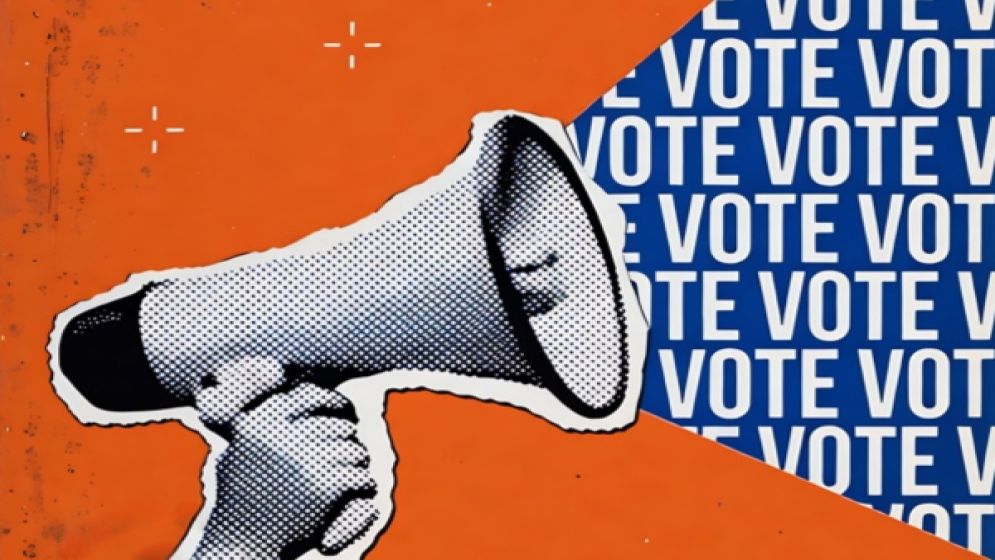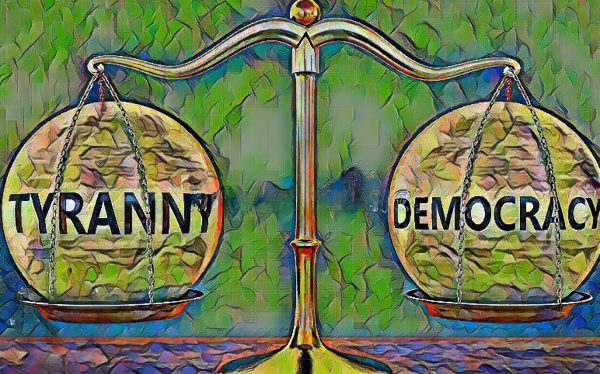Democracy delayed, democracy denied? Yunus feels the squeeze for election

As Bangladesh lurches toward yet another uncertain political transition, a broad coalition of parties is no longer whispering its demands–it’s pounding the table.
The interim government, led by Nobel laureate Professor Muhammad Yunus, now finds itself cornered by an increasingly vocal opposition demanding more than vague assurances.
They want a date. They want a plan. And they want it now.
Over the weekend, the pressure campaign accelerated. Leaders from across the political spectrum including the Bangladesh Nationalist Party (BNP), Jamaat-e-Islami, and a patchwork of leftist, centrist, and religious parties–descended on Yunus with one unified message: the country cannot afford a political vacuum masquerading as a transition.
An election must be held–and soon. One that is not only timely, but also credible, transparent, and institutionally sound.
This surge of political urgency comes as rumors swirl that Dr Yunus, reportedly has been contemplating resignation. The story broke late Thursday and ricocheted through Dhaka’s political and diplomatic circles, instantly raising alarm bells in a capital already bracing for unrest.
Saturday’s high-stakes meeting at the Jamuna State Guest House–attended by senior leaders from the BNP, Jamaat, and the National Citizen Party (NCP)--was intended to soothe growing unrest.
Instead, it intensified the calls for clarity. Far from delivering a calming message, the gathering served as a blunt reminder that the window for political ambiguity is rapidly closing.
The message reached a crescendo on Sunday. Speaking virtually from London during the 18th founding anniversary of the National People’s Party (NPP), BNP’s acting chairman Tarique Rahman dispensed with diplomatic restraint.
“The people want to see a free and fair national election under this interim government by December,” he declared. “This is not just the BNP’s demand–it reflects the national mood. We made that clear to Dr. Yunus.”

Growing demands
Not every voice struck the same tone, but even the moderates are now drawing lines in the sand.
Mojibur Rahman Monju, chairman of the Amar Bangladesh Party (AB Party), told reporters his party favored an election “by February, if possible,” but emphasized that the process must be built on consensus–not coercion.
He however openly criticized internal divisions among Yunus’s advisers, some of whom, he claimed, have actively undermined the unity forged by the student-led movements that helped bring about this political reset.
“We told the Chief Adviser: this isn’t the moment for turf wars and ego trips,” Monju said. “If that means reshuffling the Advisory Council to restore focus, so be it.”
The pressure didn’t ease as the night wore on. Throughout Sunday evening, the Jamuna State Guest House turned into a political revolving door.
Leaders from across the ideological spectrum–religious conservatives, nationalist factions, and secular reformists–lined up to press their case.
Among them: Islami Andolan’s Mufti Rezaul Karim, Khilafat Majlis’s Maulana Mamunul Haque, Jamiat Ulema-e-Islam’s Maulana Manjurul Islam Afendi, and Gano Adhikar Parishad’s Nurul Haque Nur, a former student leader turned insurgent voice of youth frustration.
Earlier that day, a separate and no less diverse gathering saw longtime leftist stalwart Mujahidul Islam Selim sit alongside Liberal Democratic Party head Col. (Retd.) Oli Ahmed, Citizens’ Platform’s Mahmudur Rahman Manna, and other figures from parties including Ganosamhati Andolon, the Jatiya Samajtantrik Dal, and the Bhasani Janashakti Party.
Consensus on the urgency of elections was near-universal. But timelines exposed rifts. While some demanded a poll by year’s end, others urged caution.
“We didn’t offer a date,” Manna said. “What we demanded is a credible process–not a hurried one that looks good on paper but collapses under scrutiny.”
Yet warnings about delay grew more pointed. “The longer we drag this out, the greater the chance of sabotage–domestic or foreign,” Selim warned.
“There are powerful actors invested in reversing the gains of this fragile transition. If we’re not vigilant, we’ll squander what people have already bled for.”
Through it all, Yunus has remained publicly composed, offering what some see as a tightrope formula. “If the reforms are limited,” he said, “we can hold elections by December. If we want deeper reforms, we’ll need until June.”
Still, time is not on Yunus’ side. The longer he waits to deliver a roadmap, the more likely this fragile coalition will fracture–and take the interim government down with it.
—

